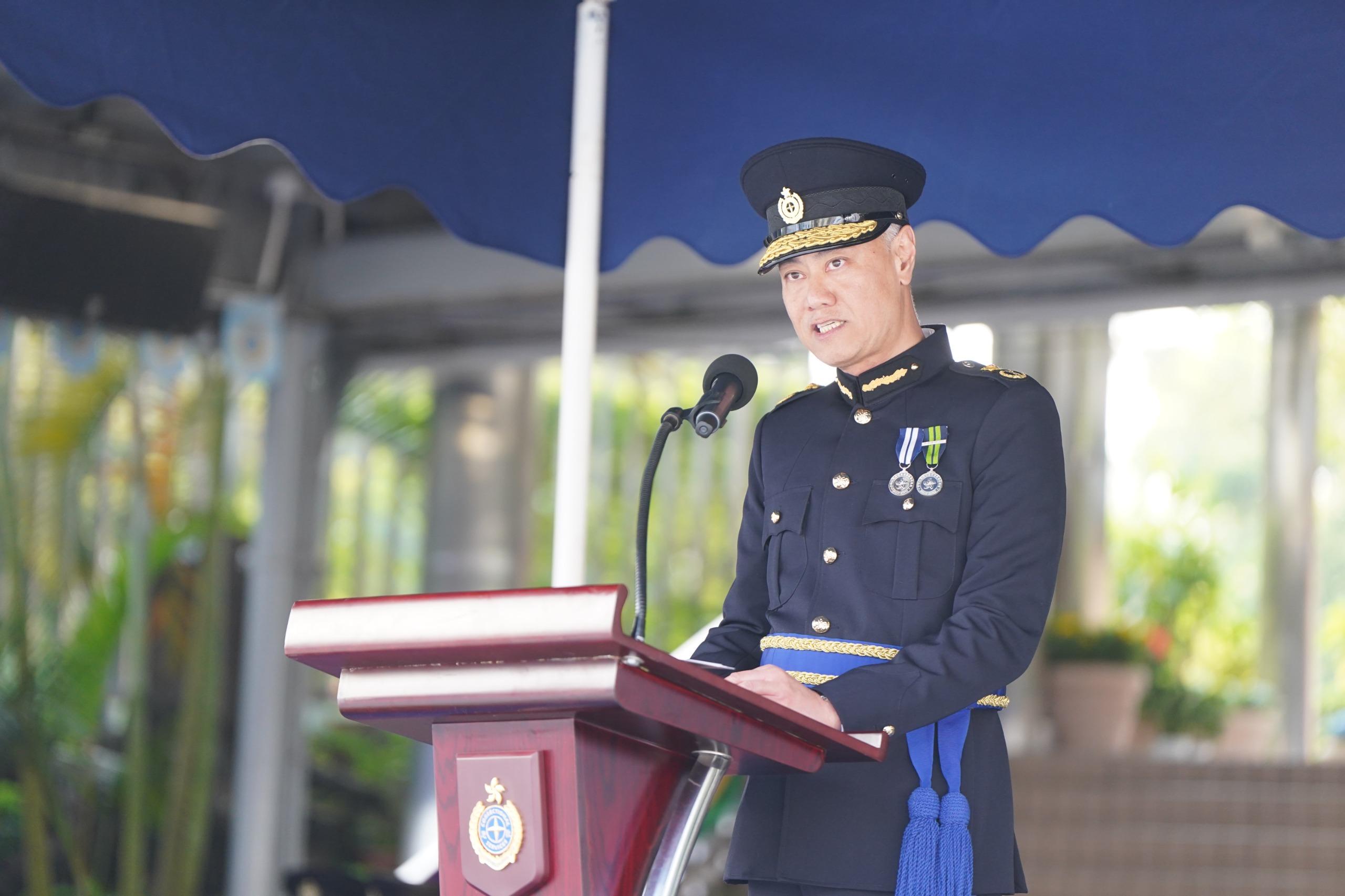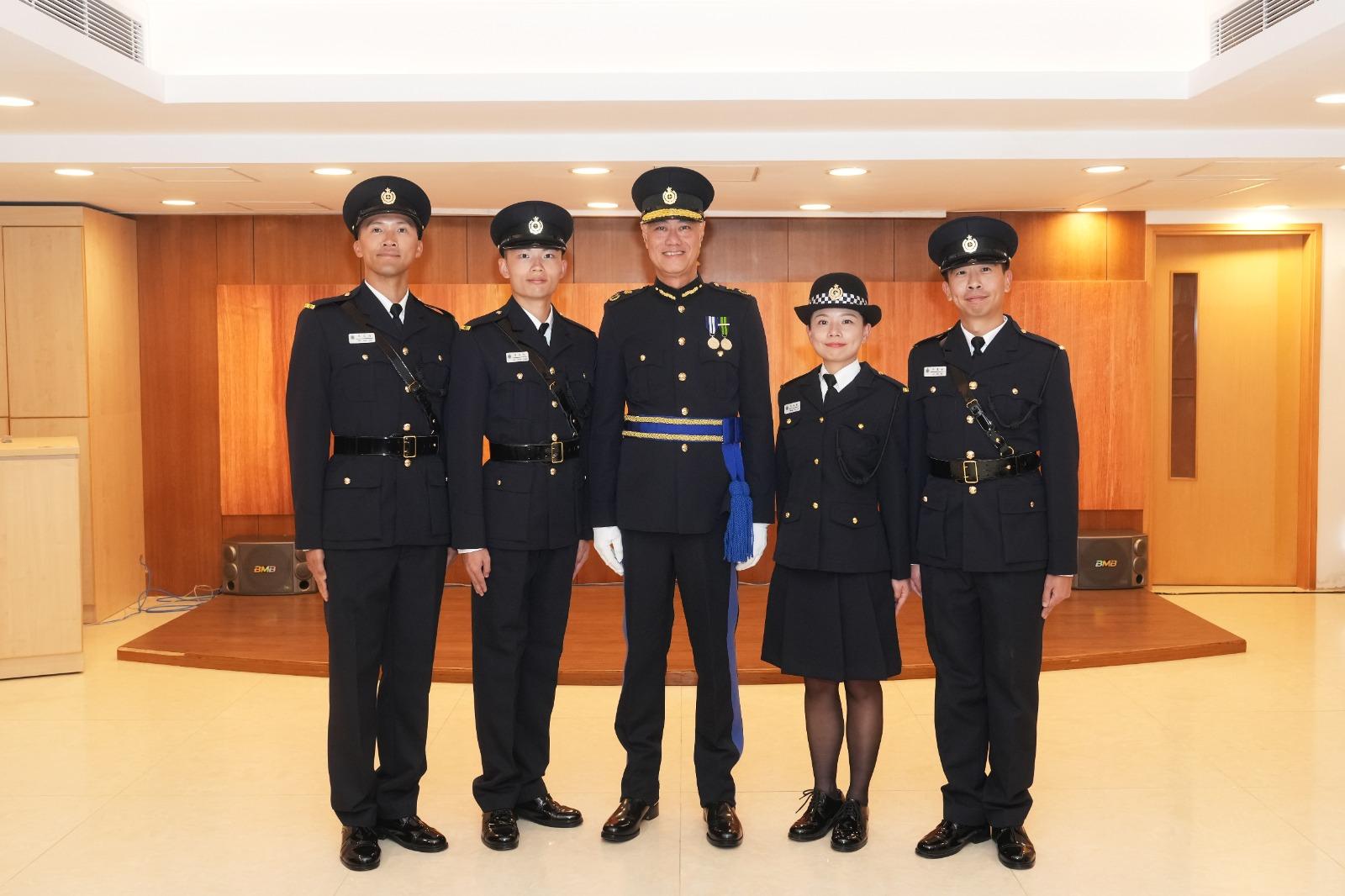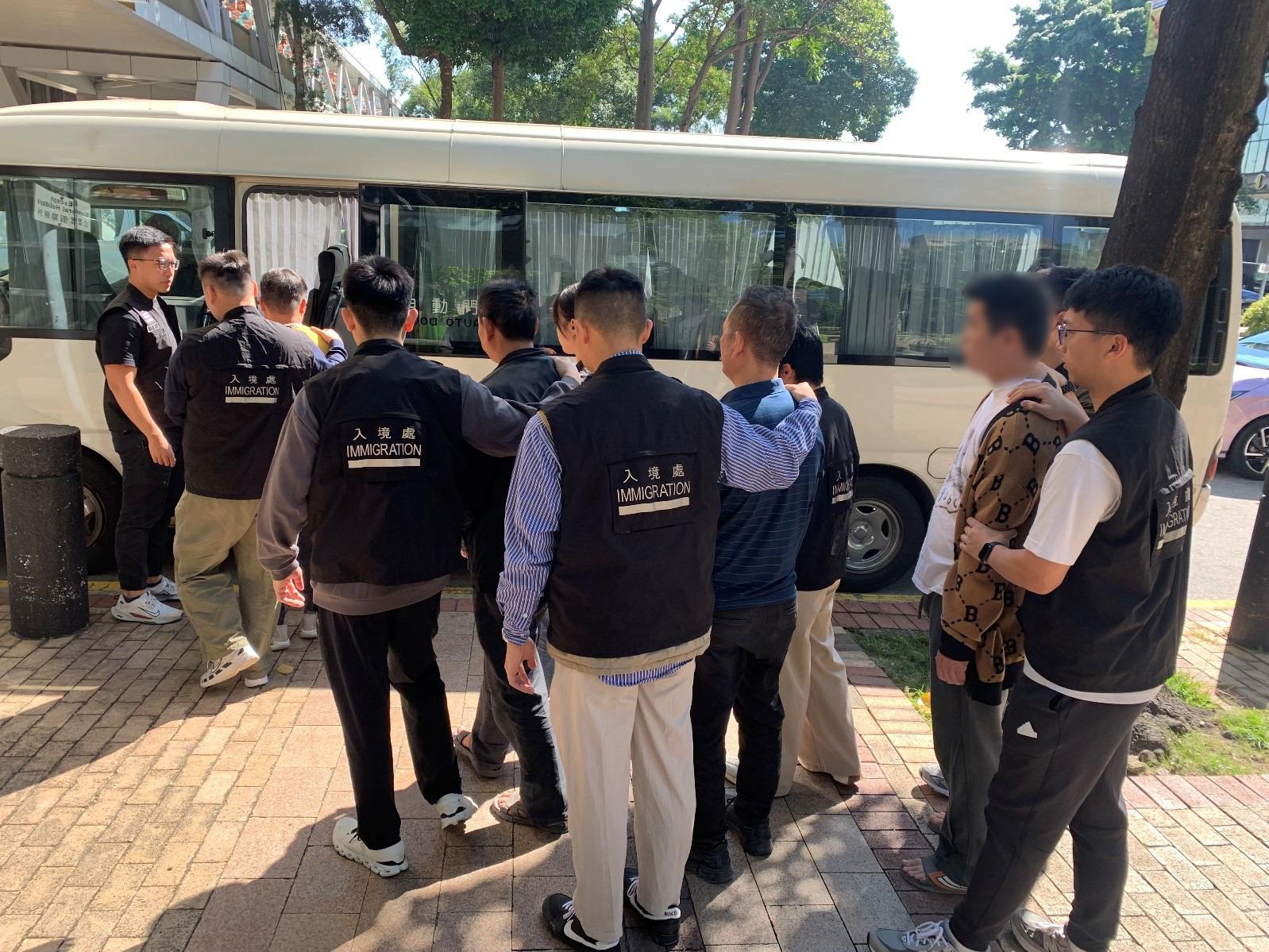Retiring Deputy Commissioner of Correctional Services encourages passing-out members (with photos)
​The Correctional Services Department (CSD) held a passing-out parade at the Hong Kong Correctional Services Academy today (December 6). The retiring Deputy Commissioner of Correctional Services (Rehabilitation and Management), Dr Leung Kin-ip, reviewed the parade, marking the graduation of 105 Assistant Officers II.
At the parade, the CSD Guard of Honour and passing-out correctional officers assembled to form different heart-shaped patterns, which symbolise the CSD's devotion to the country and home, and its endeavours to guard the last element of Hong Kong's criminal justice system through "heart-to-heart" collaboration with different stakeholders in the community.
Speaking at the parade, Dr Leung said that he has witnessed numerous changes and significant progress made by the CSD. The Department is committed to maintaining discipline in correctional institutions to ensure the proper execution of custodial duties. It has also devoted considerable efforts to rolling out new initiatives and launching diverse rehabilitation programmes to assist persons in custody (PICs) to turn over a new leaf. Furthermore, the Department has long promoted community education to disseminate national security, national education, crime prevention, anti-drug and supporting offender rehabilitation messages, contributing to nurturing pillars of society.
Dr Leung mentioned that the Ethics College, established last year, is one of the innovative and people-oriented rehabilitation initiatives by the CSD since its establishment a century ago. Adult PICs can take a one-year full-time programme to obtain a Diploma of Applied Education, giving them the opportunity to study without needing to work while serving their sentences. This year, the CSD has expanded the Ethics College to Pik Uk Prison, taking a step further to provide PICs who wish to continue their studies with a two-year full-time Associate Degree programme, as well as enabling PICs to equip themselves and develop law-abiding awareness and good characters, so that they can contribute to Hong Kong after their release.
He added that the Approved Hand-in Articles e-Ordering Service has also been rolled out progressively in correctional institutions since September to facilitate visitation. The Service not only enhances the operational efficiency of the Department, but also provides convenience to the public.
Dr Leung said that the CSD has held diverse and up-to-date community education activities in recent years to instil correct values into young people, so that they can become responsible and law-abiding citizens. The Department launched a new programme Captain Gor Union this month to recruit primary and secondary school students as non-uniformed members with an aim to engage young people and help them develop a positive outlook and strive for self-improvement, as well as to instil in young people the messages of "safeguarding our country and home, leading a law-abiding and drug-free life as well as supporting offender rehabilitation".
He noted that the Department hosted the 42nd Asian and Pacific Conference of Correctional Administrators in November, which provided a platform for correctional institutions in Asia-Pacific countries or regions to share experiences and strengthen collaboration. By hosting the international large-scale conference, the Department not only told good stories of the CSD, but also good stories of Hong Kong.
Dr Leung encouraged the passing-out correctional officers to stand steadfast at their posts and make their best endeavours to safeguard Hong Kong fearlessly with professionalism.
Concluding his speech, Dr Leung expressed his gratitude to the Department, his colleagues and rehabilitation partners for their past support and assistance, stating his immense pride and satisfaction in his nearly 30 years of service in corrections.
During the parade, Dr Leung presented the Golden Whistle to four Assistant Officers II, namely Ms Tsang Hiu-yu, Mr Ho Kin-on, Mr Sin Sing-hoi and Mr Yau Chun-long, for their outstanding performance in recruit training.





